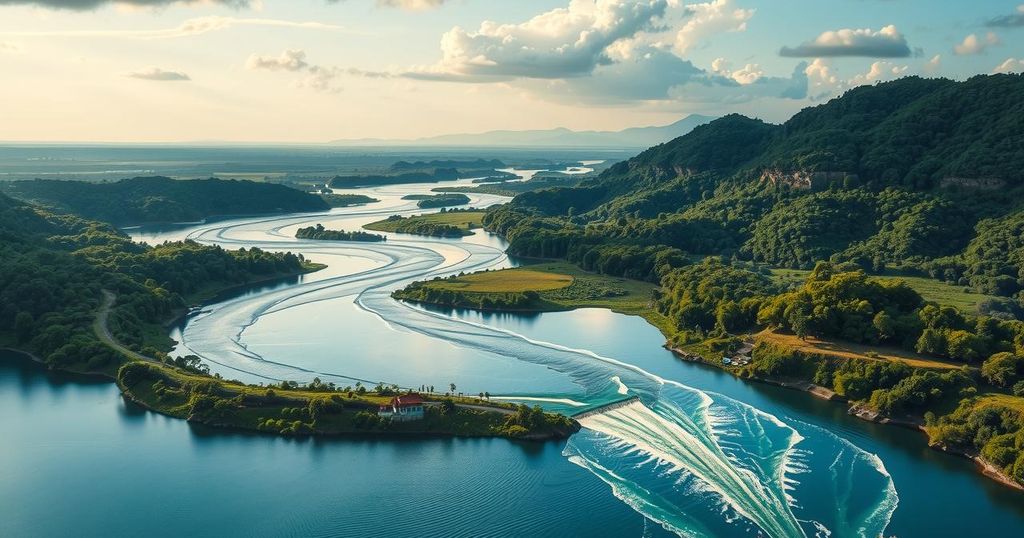Understanding the Roles of Rwanda, Burundi, and Uganda in the DRC Crisis

The DRC crisis intensifies as M23 rebels gain territory, involving Rwanda, Burundi, and Uganda. President Tshisekedi seeks to reclaim lost land, accusing Rwanda of supporting the rebels. Regional tension escalates, with Burundi and Uganda also playing complex roles. South Africa’s military involvement adds to regional complexities amid ongoing disputes. A diplomatic summit aims to address the chaotic situation and prevent further conflict.
The ongoing conflict in the Democratic Republic of Congo (DRC) has been exacerbated by the M23 rebels’ seizure of significant territory in the mineral-rich eastern region. Various neighboring countries, with their historical military interventions, have intensified humanitarian and diplomatic crises in the area. An emergency summit is being convened by the East and Southern African blocs to address the escalating turmoil.
President Félix Tshisekedi of the DRC aspires to reclaim territories lost to the M23, particularly the vital town of Goma, while condemning Rwanda’s alleged support for the rebels. He accuses Rwandan leader Paul Kagame of invading to plunder DRC’s mineral resources and instigate regime change. Despite a UN report indicating Rwandan involvement, international reaction has been predominantly verbal, leaving Tshisekedi seeking more tangible support to combat this threat.
Rwandan President Kagame has maintained a strategic distance from the conflict, denying military backing for the M23 yet emphasizing its role in defending Rwanda against Hutu extremists. Rwanda’s interests lie not only in security but also in sustaining influence over eastern DRC due to its proximity to valuable resources. This ongoing conflict is not only political but also deeply personal, as Kagame aims to demonstrate his dominance over Tshisekedi.
Burundi perceives Rwanda as a security threat amidst the turmoil, having deployed its military to assist the DRC against the M23. The geopolitical tension stems from rivalry; both countries share an ethnic background yet have opposing political leaderships. Burundi’s President Evariste Ndayishimiye warns of potential war should Rwanda’s ambitions push further into DRC, tying the stability of his government to the conflict’s outcome.
Uganda’s involvement is complex as it aids the DRC against an Islamic State-affiliated militant threat while also being accused of backing the M23. Reports suggest Ugandan troops are preparing positions near the conflict zone to prevent further escalations. Uganda’s historical presence in DRC raises concerns about its desire to secure economic interests and political influence in the region amidst competing RAPJORAMTUREs. South Africa’s military contribution on the DRC’s behalf has also heightened tensions, particularly following contentious exchanges with Rwanda. This situation exemplifies greater regional divisions concerning support strategies for both the DRC and Rwanda.
The crisis in the Democratic Republic of Congo (DRC) has its roots in historical conflicts and external influences, particularly following the 1994 Rwandan genocide. As various rebel groups vie for power, the DRC’s vast natural resources have become a point of contention. Neighboring countries, such as Rwanda, Uganda, and Burundi, have historically intervened in DRC affairs, often igniting broader regional conflicts. The current surge in violence led by the M23 rebels has prompted neighboring nations to reconsider their positions and alliances, highlighting the intricate political dynamics and security concerns in the region.
The situation in the Democratic Republic of Congo exemplifies how historical grievances, territorial ambitions, and regional power dynamics shape ongoing conflicts. Neighboring nations, driven by both security concerns and resource ambitions, play pivotal roles in either exacerbating or attempting to mitigate the crisis. As the conflict continues, international responses remain crucial in determining the course of the DRC’s stability and regional relations. The need for diplomatic solutions becomes ever more pressing to secure peace and address the humanitarian fallout of the crisis.
Original Source: www.bbc.co.uk








